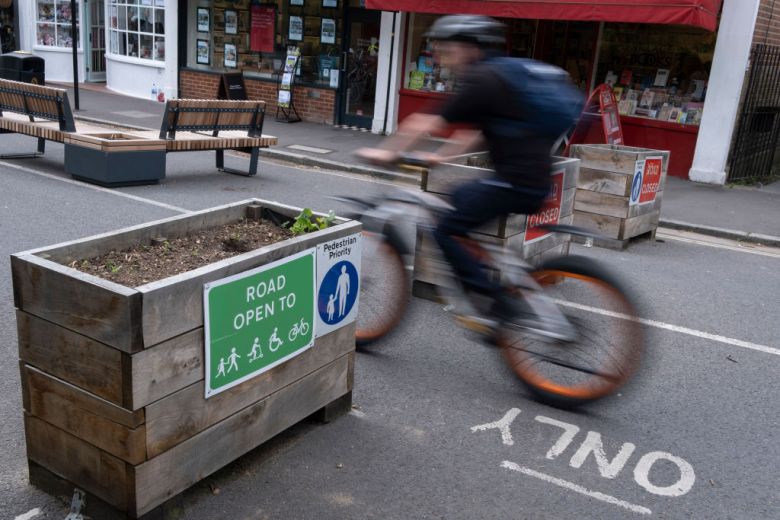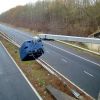A LTN is a government scheme that is used to reduce the amount of traffic through residential areas through the use of barriers, bollards, and planters.
They are also implemented through automatic number plate recognition cameras and road signs. This enables local residents to pass through an area.
LTNs were introduced in 2020 following £225m of funding, and have been used to encourage cycling and walking by limiting driving in residential streets.
Many LTN regions have separate cycle lanes, and larger walking areas.
However, new revelations have shown that the data used to justify their implementation across the UK was not accurate.
A spokesperson for the DfT said: “Historic minor road traffic estimates have been revised and are lower than those previously published.
“The figures used at the time were based on the most accurate data available.”
The latest development follows a review into the report used to justify the use of LTNs. The new data found that the department had significantly over-counted the increase in traffic on residential streets between 2009 and 2019.
The Government’s minor-road traffic estimates report revealed statistics that suggested that there was almost a 60% rise in London’s minor road traffic and a 72% increase on its smallest roads. However, there has been no increase over the last ten years according to the new review.
Original data indicated a 26% increase in minor road traffic across the whole of the country between 2009 and 2019.
However, the new report has reviewed this figure to an increase of 10%.
- LTN cameras generate £2.5m after drivers caught by scheme
- Traffic cameras – what you need to know
- Has ULEZ been unfair to drivers?
- Overturned planters and oil-slicked roads: low-traffic neighbourhood backlash
The review stated that there were “areas for improvement” in how the estimates were reached have been implemented for when they collect future data. Transport for London also confirmed that they would be reviewing the data update.
LTNs have been a controversial topic within the UK motoring community, as detractors argue that they make congestion worse and cause more trouble than before they were installed.
Many also argue that they increase pollution due to drivers having to find alternate routes and shutting off certain roads to get to their destination.
Some local councils have suspended or downgraded their LTN projects since its introduction in 2020.
However, a YouGov poll for Greenpeace UK, which quizzed 2,027 British adults about their views on LTNs, found that 57% supported them and only 16% opposed them.
Do you believe LTNs have been a good introduction to UK roads? How could they be improved? Leave your comments below.

RAC sale – up to 33% off*
• Roadside cover from £5.29 a month†
• We get to most breakdowns in 60 mins or less
• Our patrols fix 4/5 breakdowns on the spot











